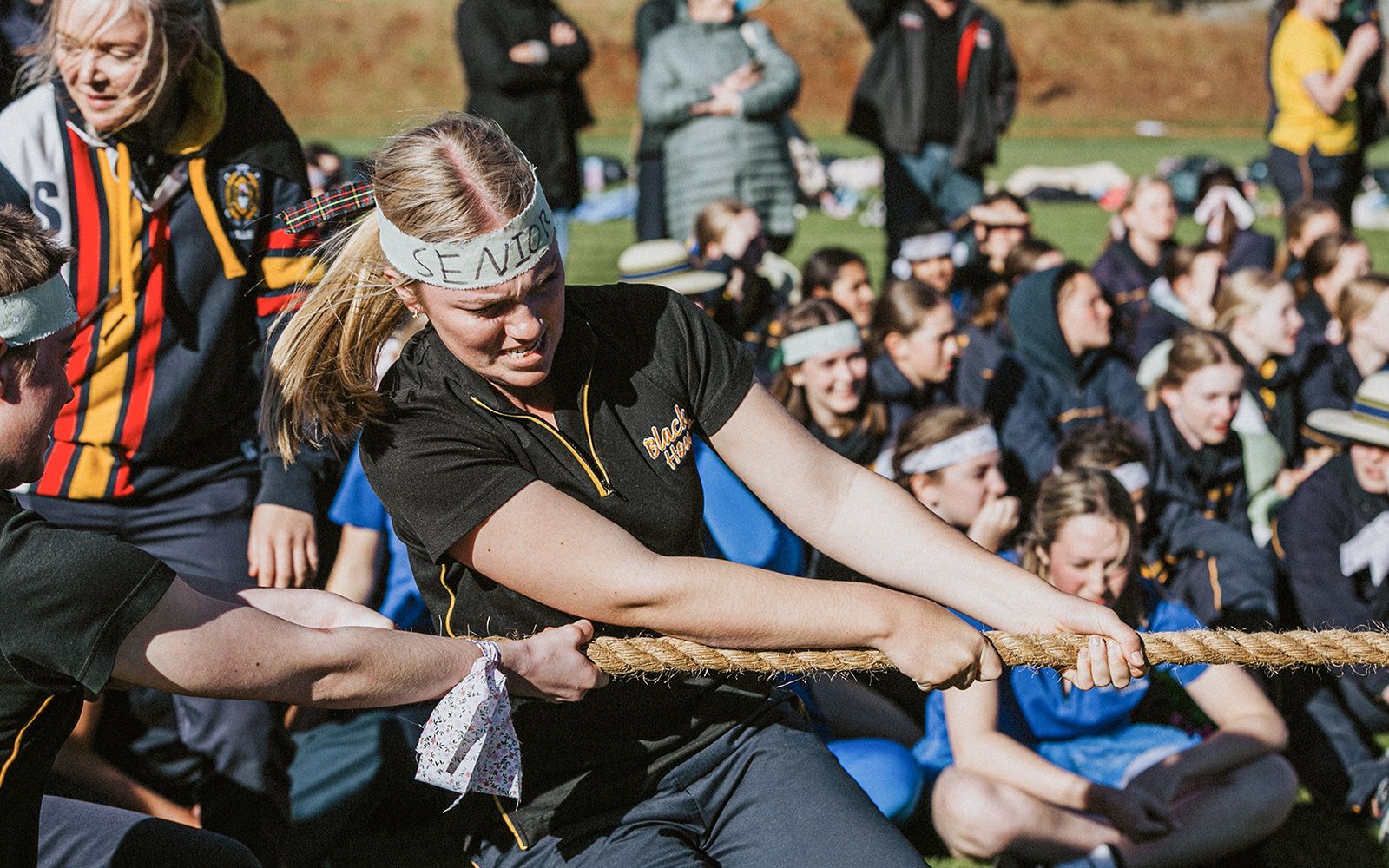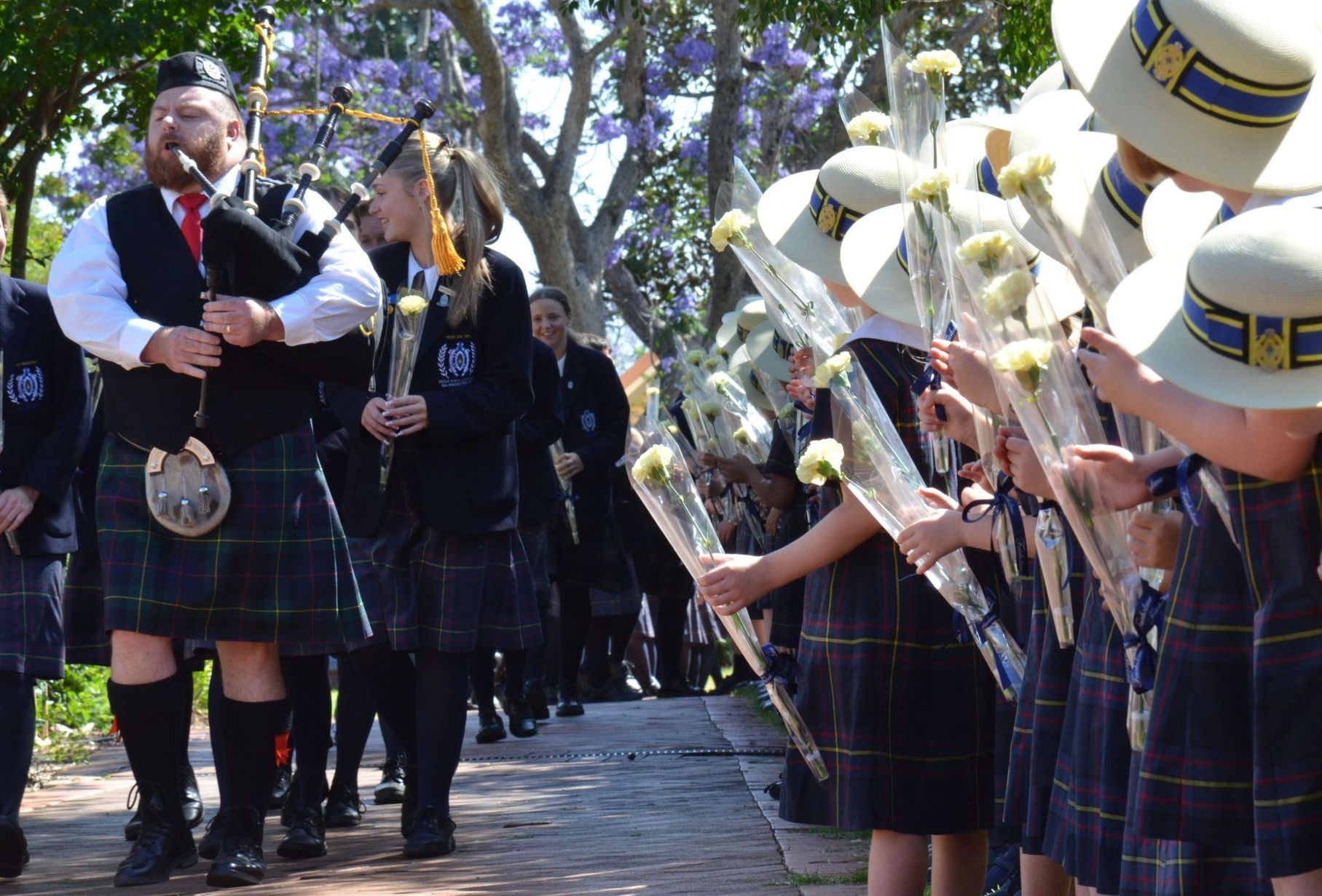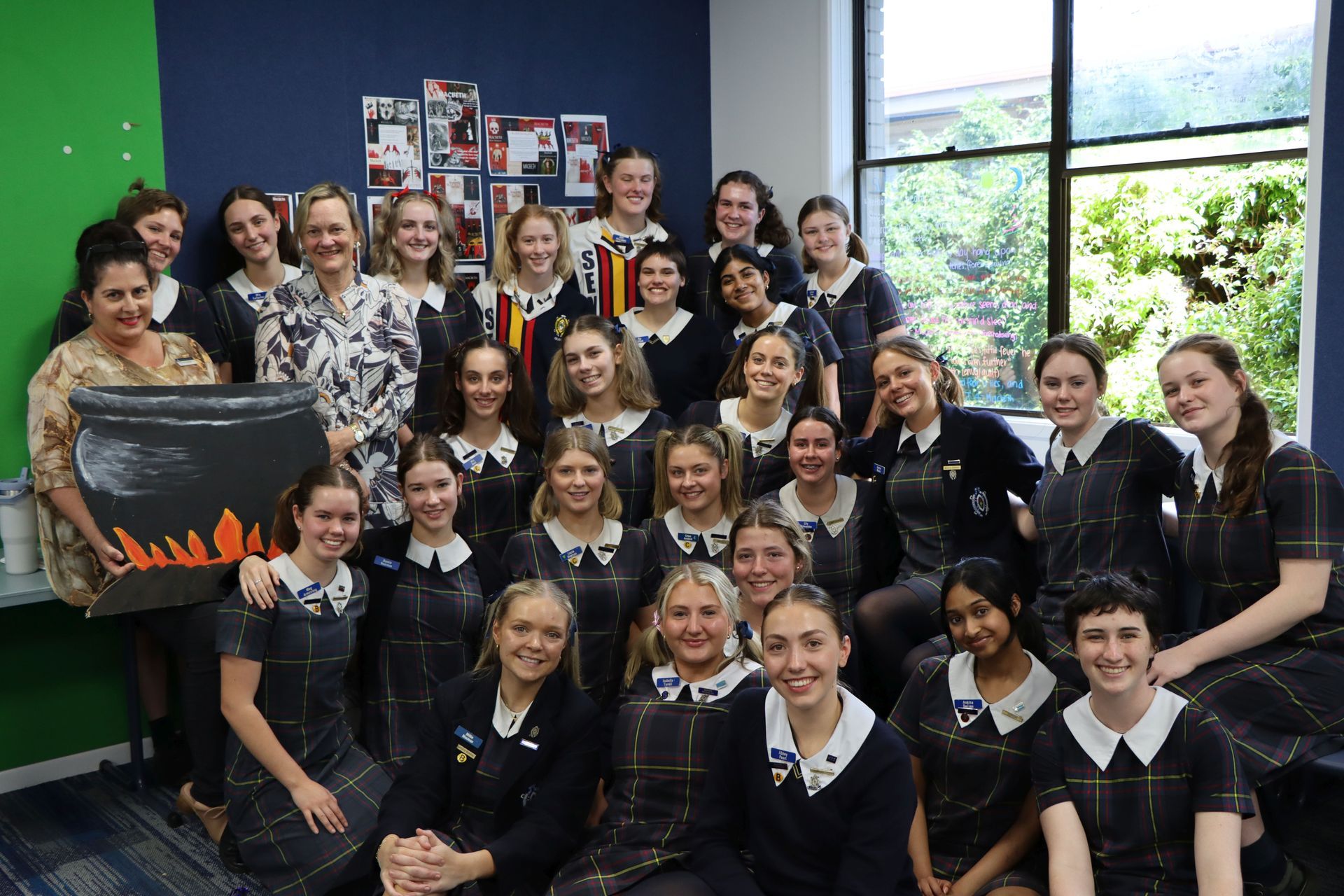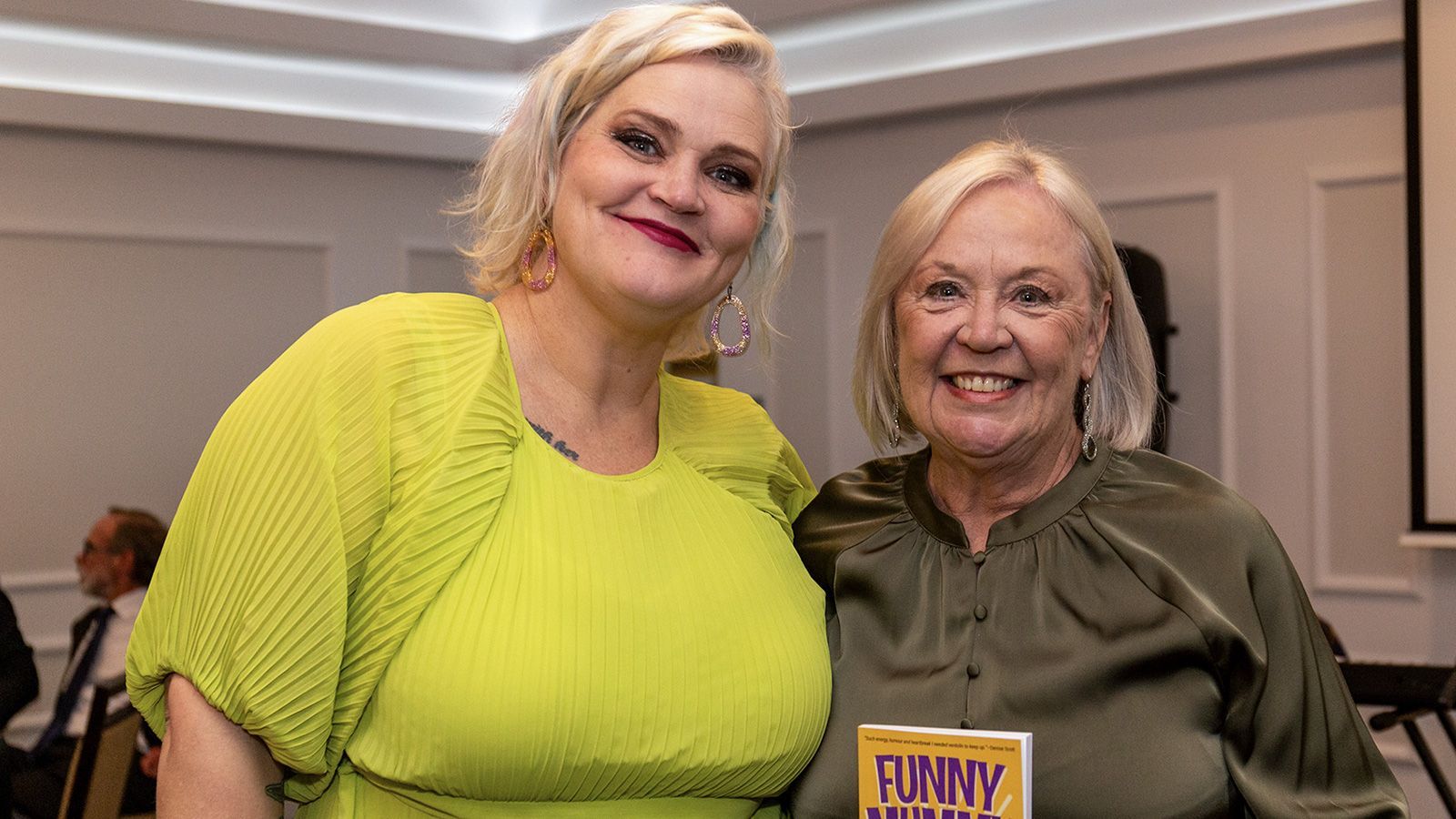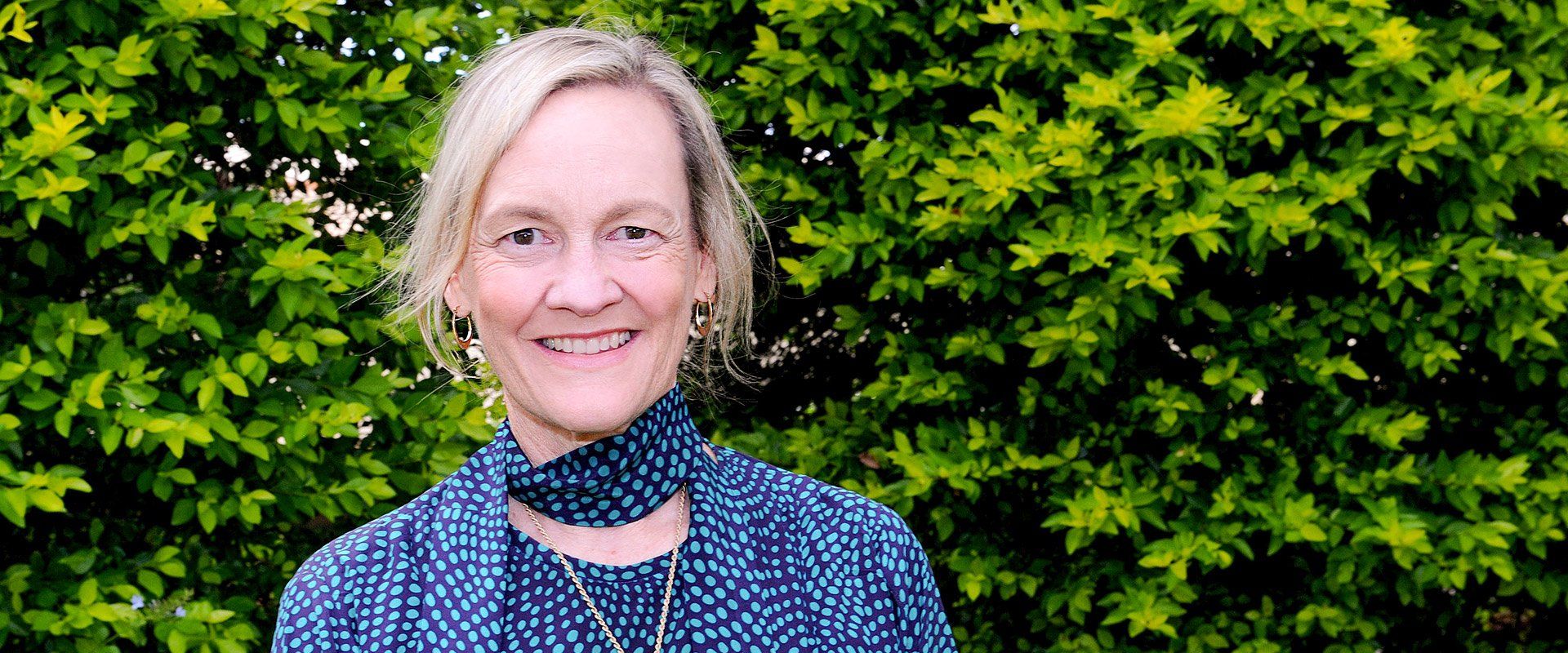
‘In Principal’
Dr Linda Evans
Button
Current ‘In Principal’
See earlier posts via links to annual archives - below

By Sarah Richardson
•
January 31, 2025
Beginning. Starting. Commencing. What does beginning well actually look like? Sometimes when we expect a perfect start, we overlook the quiet power of simply showing up, the world is run by those who show up. Those people who never, ever ring the bell, those people who show up, even when it is hard to do so, especially when it is hard to do so. Brene Brown reminds us that “the willingness to show up changes us, it makes us a little braver each time we do.” In enacting bravery, it is important to start small if that’s what it takes. American Naval Admiral, William McRaven says this: “If you want to change the world, start off by making your bed. If you can’t do the little things right, then you will never do the big things right.” He believes in persistence. His mantra is this: don’t ever, ever ring the bell. He refers to the initial training for the United States of America Navy Sea, Air, and Land Teams the SEALS. Their initial training sees more than 80 percent of participants drop out. During this training, a brass bell hangs in the center of the room for all the students to see. If they find the work too hard. If they decide against becoming a SEAL. All they have to do to quit—is to ring the bell. Ring the bell and they no longer have to wake up at 5 o’clock. Ring the bell and they no longer have to complete freezing cold swims. Ring the bell and they no longer have to endure long runs carrying heavy weights, the obstacle courses, or to suffer the hardships of training. Just ring the bell and it’s all over. When exhausted SEAL candidates reach their breaking point, they haul themselves to the bell and ring it three times. The sound echoes through the training grounds and announces publicly that another candidate has “opted out.” All they have to do is ring the bell. Just ring the bell and the hard work stops. I wonder if Lilli Hamilton (Queensland cricketer and HEAT member) rang the bell when Cricket training no longer felt like it was fun, or if Alex Edwards (Australian Orienteering representative) opted out of orienteering because frankly, the distance was too far, or if Scarlett Sippell (Emus National Youth Touch Football Squad member) gave up because training was too tough …. what they would miss out on … When we opt out, even when it is hard, we also miss out on possibilities. There are so many opportunities at Â鶹ÊÓƵto achieve one’s best - academically. In the Arts. In Sport. Opportunities to serve others. To be a good friend – a good person. But then again, if any of those things are too hard, all anyone has to do is – opt out. Say it’s too hard. Say they didn’t get selected in the right team. Say their teachers didn’t give them the right results. Say they weren’t given the right position. Text their parents and tell them that Â鶹ÊÓƵis awful. All they have to do, is ring the bell. Yet, if we want to change the world, If we want to get the best out of this year at Fairholme, whatever that involves - never ever give up. Start small, aim big. Always show up. Don’t give up. Don’t ever, ever ring the bell. The most meaningful changes in life are often built in the times that no one sees, and, importantly, in the daily decision to simply show up, and to show up for others. When my daughter, Natalie was twenty-one, she began her teaching career at an Autism specialty school in Brixton, London. She would phone me often: for advice, for debriefing, for re-setting – her school was classified as being in Special Measures – it was on the brink of closure. Often, when she phoned to describe her day – to talk about the boys in her class, all aged 12 or 13, it went a little like this: “Today, Mashley threw a chair through a window because he didn’t like the activity we were doing. I had to break up a fight at lunch. Jerome pulled a knife on me. Three boys in my class have joined gangs.” I wanted to say: “Natalie: get another job. That one is too dangerous.” I wanted to fly her home from London, immediately. I had to stop the urge to board the next plane to London and rescue her. But my advice to her – was this: Show up. Keep showing up. No matter how you feel… Get up, dress up, show up: don’t give up. These kids need to know that someone cares enough to show up. After all, when we show up for others, we can affect the most profound of changes. I am always intrigued about who shows up here at Â鶹ÊÓƵ– especially at difficult times. In 2011 when floods ravaged Toowoomba and so much of Â鶹ÊÓƵwas flooded – staff showed up - in their holidays. They turned up to rip up carpets, move furniture, clean floors, and walls. Last year, in the sadness of Sess’ passing our community showed up, in droves, with deep compassion – importantly, our community showed up for one another. I think of 2024 Year 12s who showed up for others, after they had officially finished attending classes at and were preparing for or undertaking their external exams. Lizzy Kelly and Ciara Teahan showed up to play in the stage band, for the Year 11 Leaders Assembly, so that the group could perform at its best. Roma Aarons came to an Assembly in November to share a fabulous rendition of ‘Hotel California’. On a Sunday morning, early in December, graduated students Rachel Yap, Alana Callaghan, Amelia Ramia and Roma Aarons, showed up at Rosies to prepare food for Toowoomba people who don’t have easy access to basic necessities. After last year’s Interschool Athletics Carnival, Clare Hogan noticed staff picking up loads of lost property and carrying it into the Assembly Hall. She asked – Can I help? When we show up, especially when it is for others, especially when it’s hard, we learn a lot about ourselves and others. The students at the school where my daughter taught in Brixton, London – needed teachers to show up, they needed people to notice them, they needed interest, care, attention. They needed to know that they mattered. The willingness to show up changes us. It makes us a little braver each time, particularly when we show up for others. Show up. Keep showing up. Show up for others. And remember the advice of Naval Admiral, William McRaven … even when it’s hard, don’t ever, ever ring the bell. Begin well, continue well, finish well. Dr Linda Evans │Principal
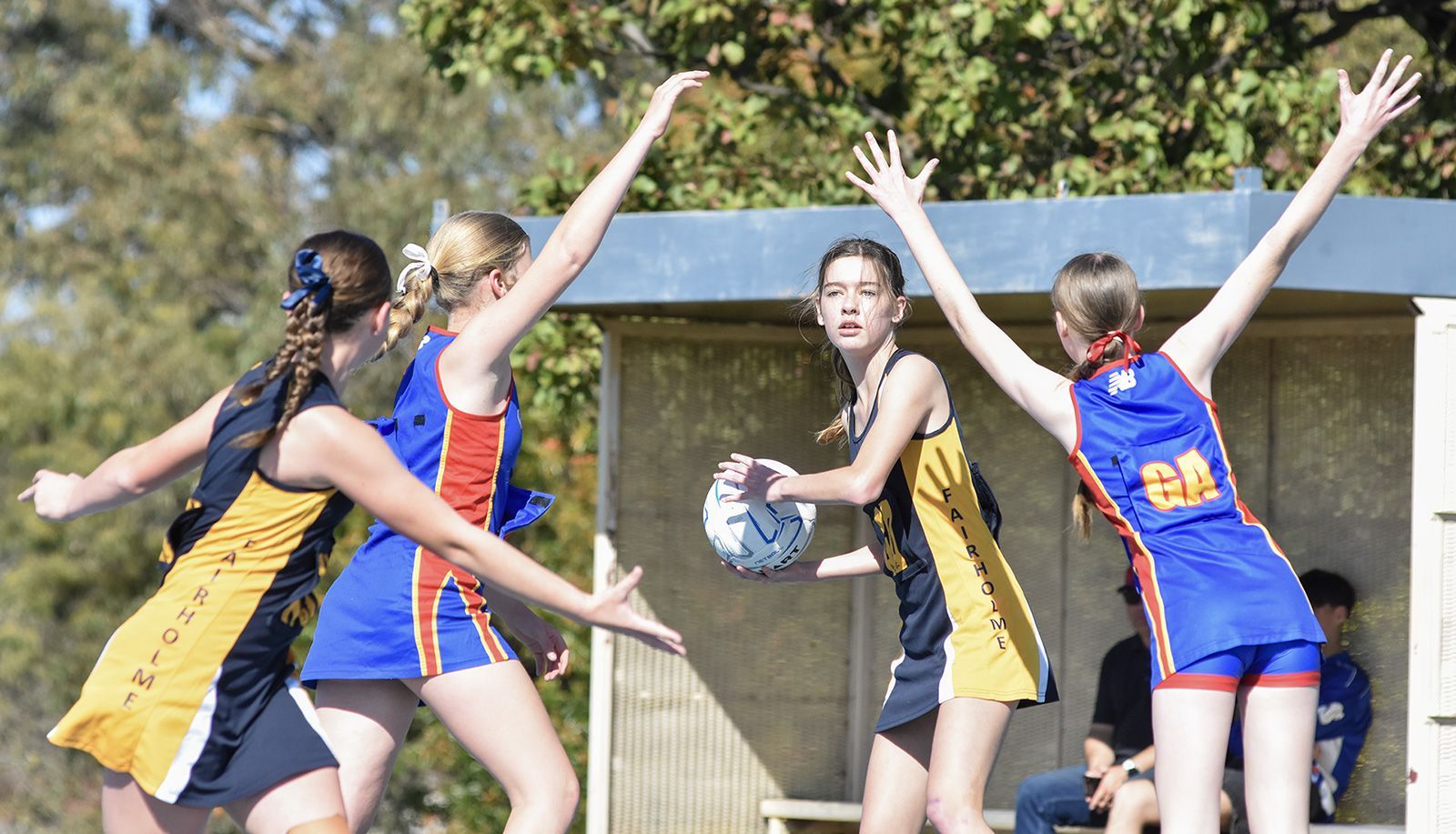
By Graeme Morris
•
September 10, 2024
I enjoy watching Â鶹ÊÓƵsport, debating, dance, choir … (and the list meanders on) – from the sideline. There is joy in watching without responsibility. It does not, as Mr Tregaskis would attest, mean that I do not wince when I see what I believe to be, an incorrect umpire’s decision. You have no idea how much I will miss standing on the sideline observing young people learning to be. After all, these performance arenas are just that – places of becoming. That is, when we, as adults don’t mess with ‘the becoming.’ In anticipation of losing my legitimate reason to watch Â鶹ÊÓƵplay anything, perform anything … I am concentrating on the privilege of the moment. I am soaking in the delights of fiercely contested debating finals, narrow wins and losses on the courts and fields of Toowoomba where the temperature is always colder or hotter than forecast and, the unparalleled joy of Junior School girls dancing on stage without inhibition, some perfectly attuned with the music’s beat and other’s not. I am absorbing the opportunity to witness learning at its essence. Performance in sport or The Arts is a public event. If your artwork is hung in a gallery space it is ‘public’ – open to be appreciated or criticised. If one is singing, dancing, debating or playing an instrument on stage with an audience there is nowhere to hide if an error is made. And, on a court or field – one’s performance is open to scrutiny or praise – or everything in between. Becoming is core business at these times. Anthony Simcoe, perhaps best known for his role as Steve in the epic Australian film, ‘The Castle’ with lines like, “Dale dug a hole, Dad,” or “How much for jousting sticks?” was a gangly fifteen-year-old boy when I first met him at Burnside State High School in Nambour, where he was seeking to master the volleyball dig, serve and set. Who would have imagined his becoming? Even years on, Anthony would say that he learned to become an actor through washing dishes at cafes – earning money between acting jobs – learning to observe the humanness in his customers. He washed a lot of dishes and served a lot of tables in order to become a credible member of ‘The Castle’s’ Kerrigan family. In tedious hours he learned about people and about hard, repetitive work. Repetition is the underpinning pattern of rehearsal and practice. Some of us do it well, others not so. I hear it in action many mornings as I pass the Performing Arts building, I see it on mornings and afternoons in our gym and on our oval. Rehearsal. Practice. Becoming. It is far more palpable; it would seem, than our classroom learning which inhabits a far more private space: often behind a closed door. How special it was, a few weeks ago, to invite the parents of Year 12.1 English to join their daughter, Mrs Anderson and I for a Period Five Friday afternoon lesson of ‘Macbeth.’ Seated in a huge circle in the confines of G24, students directed the lesson: spelling, quotations, thematic discussions and questions, for their parent and the other class members. It was an impressive moment (from a teacher’s perspective anyway) – to see students demonstrate their knowledge in a semi-public forum. It was timely for parents, no doubt, to remember the awkwardness of not knowing an answer, the joy of accuracy as well as the discomfort of feedback about an incorrect assumption – these are aspects of learning with which our students grapple, daily … as they become. There was delight in sharing the messiness of learning, the non-linear path of knowledge and how these segue to ‘becoming.’ Although, that moment of self-actualisation we seek or reaching the mountain top does not come at the same time or in the same way for any of us. And we have to be patient from our sideline position. We have to trust the process. We have to remember also, that losing and missing out are important components of future winning. We have to remember in the words of Saint Ignatius Loyola, Spanish Priest, theologian and thinker, “we learn only when we are ready to learn.” St. Ignatius reminds us that education is not confined to classrooms; it can happen anywhere and at any time: if we allow it. And thus, as adults, as we inhabit more than our fair share of sidelines real and metaphoric, during the rundown to the finish line, let us all be gracious in allowing our young people ‘to become’ … a process that is uneven, at times uncomfortable, messy, deeply disappointing and … often wildly exhilarating. Let us enjoy each and every facet and be gracious in the spaces where alignment with expectation is not met in performance or outcome. It is here, in this place, which can feel unpleasant, unsatisfactory and uninvited that the greatest learning and hence the greatest opportunity to become, can occur. If we, as adults who should know better, don’t mess with ‘the becoming.’ “Another ball game lost! Good grief!” Charlie moans. “I get tired of losing. Everything I do, I lose!” “Look at it this way, Charlie Brown,” Lucy replies. “We learn more from losing than we do from winning.” “That makes me the smartest person in the world!” replies Charlie. Win some. Learn some. Become. Dr Linda Evans │Principal  REFERENCE Maxwell, J. (2013) On Turning a Loss into a Gain | Adapted from Sometimes You Win, Sometimes You Learn (October 2013)
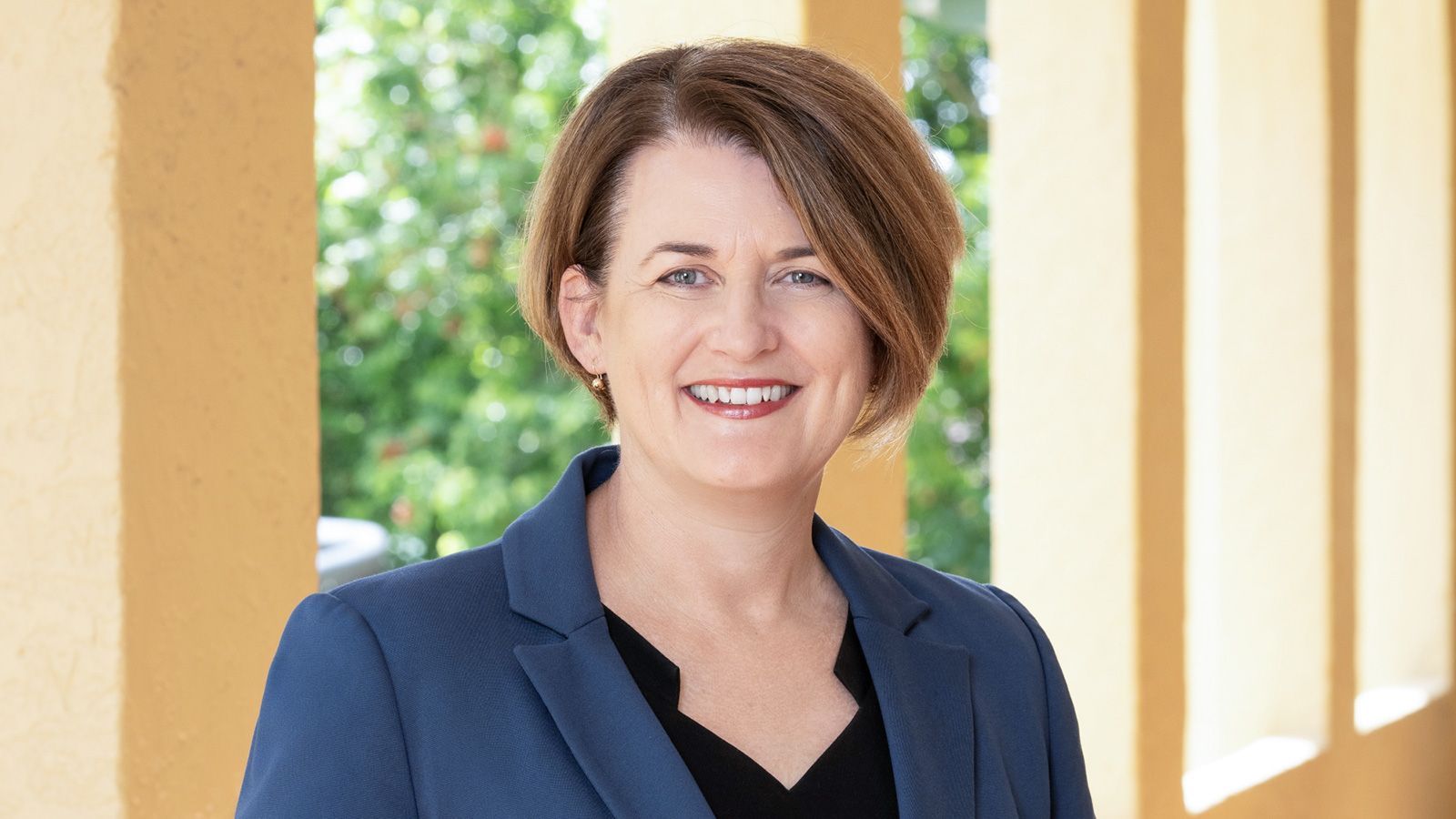
By Graeme Morris
•
August 8, 2024
Dear Members of the Â鶹ÊÓƵFamily I am pleased to inform you of an important development at Â鶹ÊÓƵCollege on behalf of the Â鶹ÊÓƵCollege Board. After an extensive search process, the Board of Directors is delighted to announce the appointment of Dr Leigh Hobart as the new Principal of Â鶹ÊÓƵCollege, effective from April 2025. Dr Leigh Hobart is a seasoned educator who is returning to Toowoomba, bringing with her over 30 years of experience in the field of education. As a sixth-generation Toowoomba resident, Leigh has deep connections to the Darling Downs region and is excited to rejoin this vibrant community. Throughout her extensive career, Dr Hobart has held various significant roles in education, most recently serving as Deputy Headmaster – Academic Performance and Innovation at Brisbane Boys' College. With a focus on developing an inclusive and collaborative culture, Dr Hobart has led various initiatives that have had a profound impact. From introducing a phonics-based reading and writing program in the early years to negotiating the implementation of the Queensland Senior School curriculum, she has consistently demonstrated her commitment to excellence and innovation. Her professional journey has been driven by a deep passion for leading learning communities where students and staff can flourish. She firmly believes in the transformative power of education and its role as fundamental to a high-functioning and progressive society. Dr Hobart's dedication to student improvement and success is a testament to her passion and commitment. She values integrity, respect, professionalism, and lifelong learning, creating a solid foundation for her leadership journey. Her highly developed interpersonal skills and collaborative approach have earned her the admiration and respect of the community, staff, and students at the schools she has served. Dr Hobart's expertise extends beyond her leadership roles, as she has actively engaged in research, initial teacher education accreditation, and professional development networks. Her academic achievements, including an Education Doctorate from QUT and a Master of Education, further enhance her ability to lead and inspire others. As Dr Hobart continues to make an impact in the field of education, she hopes to inspire young women to pursue their dreams with passion and determination. Her journey is a testament to the power of resilience, hard work, and belief in oneself. She firmly believes that every young woman has the potential to achieve and make a positive difference in the world and looks forward to engaging with the Â鶹ÊÓƵcommunity to add value to their already vibrant school. I would also like to acknowledge our current Principal, Dr Linda Evans, for her dedication and commitment to our community during this transition period. Her humility, professionalism and capacity to inspire students and staff will live on well into the future. Thank you for your ongoing support and commitment to Â鶹ÊÓƵCollege. We are confident that under Dr Hobart's leadership, our school will continue to thrive and provide an exceptional educational experience for all our students. Yours sincerely Ian Andersen | Chairman
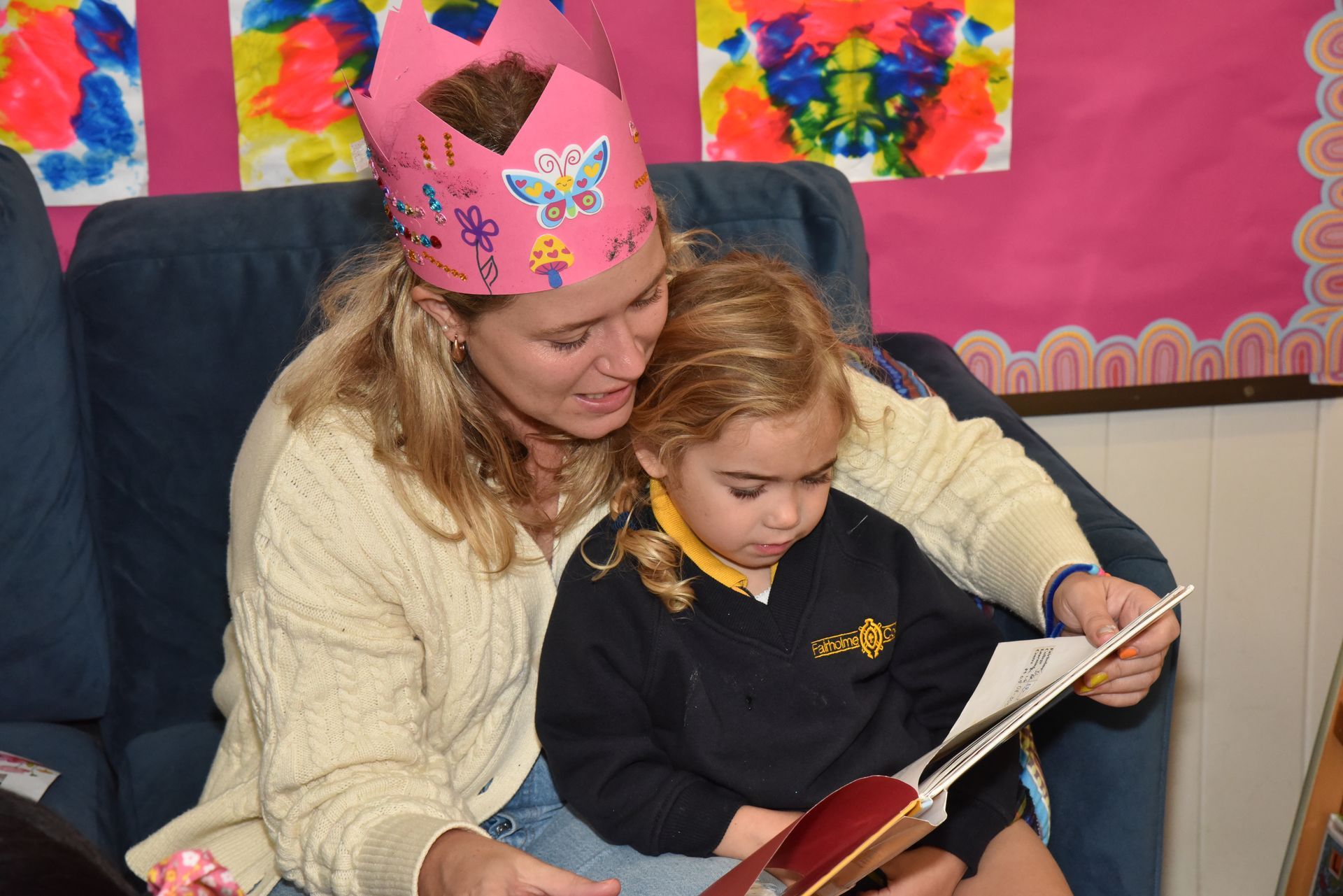
By Sarah Richardson
•
August 5, 2024
When my daughter was twenty-one, she began her teaching career at an Autism specialty school in Brixton, London. She would ring – often for advice, for debriefing, for re-setting – the school she was at was classified as being in Special Measures – it was being inspected most weeks by OFSTED and was close to closure. The staff had to make big changes to practice to get the school functioning again. To do so was tough. Redirecting our habits and practices is tough. Sometimes she would ring and describe her day – a chair thrown across the room, desks thrown out of windows, students exploding with frustration. Vastly different from Fairholme. But my advice to her – as it is to all - was this: Show up. Keep showing up. When we show up, even when it’s hard we learn a lot about ourselves and others. The kids at her school in Brixton, London – needed teachers to show up, they needed people to notice them, they needed interest, care, attention. Basic needs for us all. They needed to know that they mattered. Mattering is a fresh take on its noun cousin – matter and has a psychological science behind it too. Mattering is, according to Dr Flett, a York University professor and author of the text – “The Psychology of Mattering,” a core, universal human need. It runs more deeply than purpose, or connection or belonging – it runs to being “missed by people in your group if you aren’t there.” In the bliss of Olympic watching, I have been struck over and over again, by the value of family in the success of athletes: their mattering. I watched Ariarne Titmus’ family breathe through every stroke in her 400-metre final, and delighted when Jess Fox, having blitzed the canoe slalom K1 final, paid tribute to her family. On her helmet are the words – “Ma petite est comme l’eau, elle est comme l’eau vive,” translating to “My little girl is like the water, she’s like the white water.” These words belong to a song her Papi (grandfather) sang to her as a small child.In some ways, singing her into her future. Those words have weight for her, they are mattering words. Jess’ father, also an Olympian said something to the effect of, “I’m proud of her achievement but most of all, I’m proud of who she is as a person.” These are ultimately the things that matter most: family, connection, purpose, belief. The things we say, do, our actions and our reactions as parents, matter. Yet, we parent on the run, don’t we. In the midst of the pace and chaos of life we are setting the tone, the tenor and the trajectory of our children’s lives. Our responses – each and all become the frame and filter of their worldview. We often hear that the first 1000 days of parenting are the most formative, foundational - get them wrong and we have missed the moment. Every 1000 days of our children’s lives, matter – even when they enter their thirties, as mine have. Hopefully, we have the privilege of parenting our children long into their futures and that we continue to show up for them, because in that example, we are enabling them to do the same. In effect, we are engaging in the process of mattering. Show me your friends, show me your family – and I will have a glimpse into your future because I will have a sense of what matters to you. Perhaps, a little like Jess Fox’s Papi who sang her into a love of white water, every step we take as parents, every word we speak, every action we undertake is about demonstrating mattering. Even in those tough moments, those hard conversations and those testing times we need to show up. We need to keep showing up. When we do, what a wonderful example we are etching in our children’s character.  Show up. Keep showing up.
See also the ‘In Principal’ archive:



